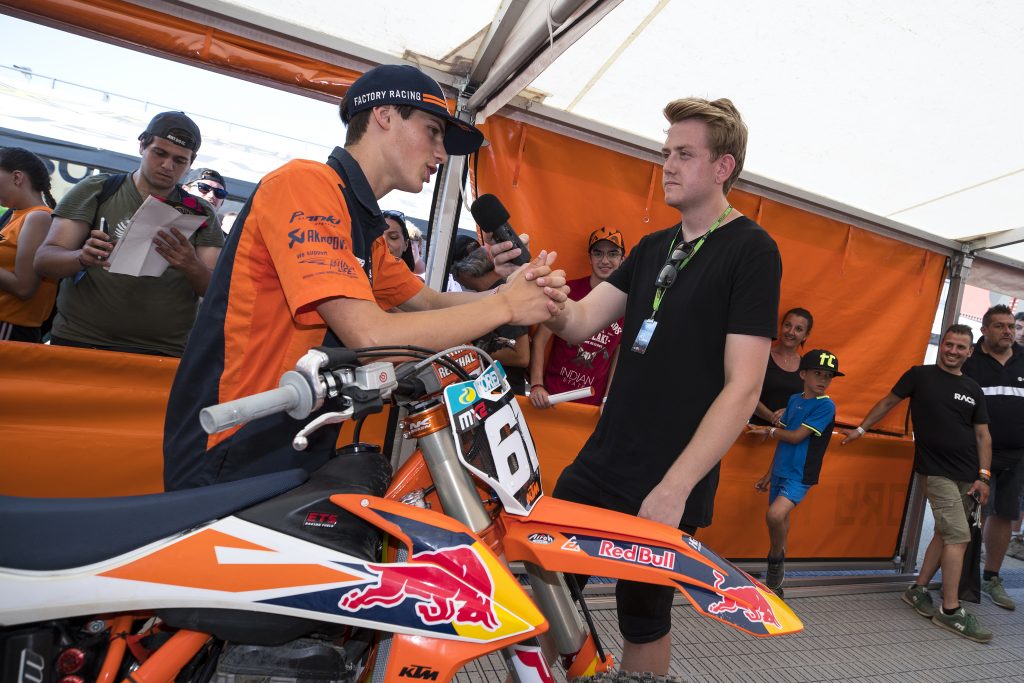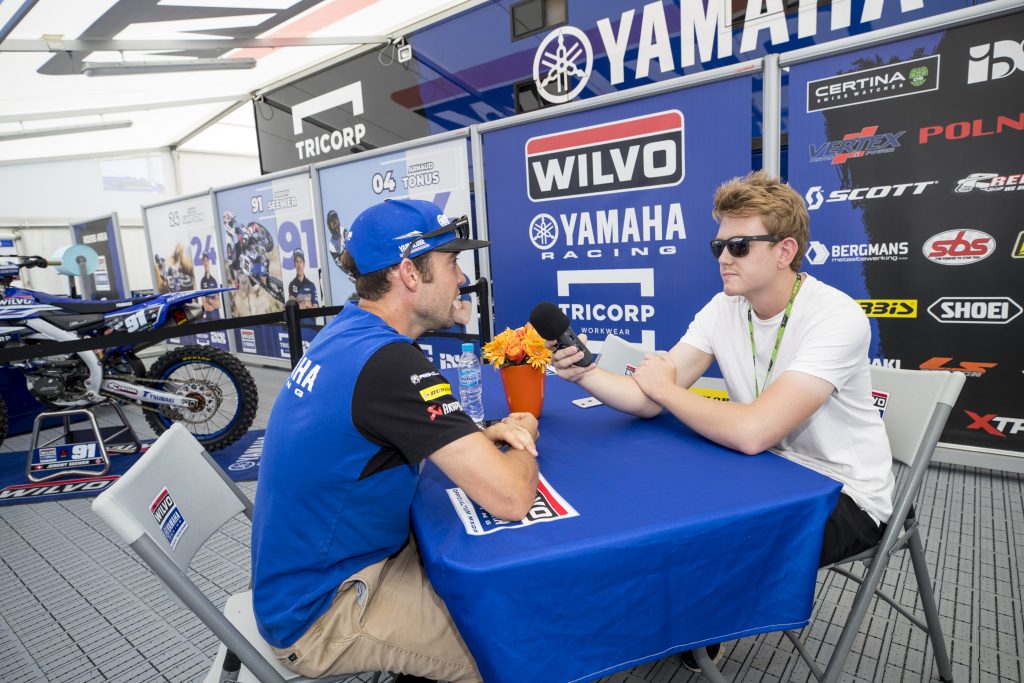
Making your way
Lewis Phillips is one-of-a-kind it seems. While the shyness has ebbed away to be replaced by knowing confidence the work ethic and determination has always been fierce. Being able to attend every single MXGP Grand Prix and also a hefty chunk of the AMA Supercross series as well as keep tabs on major off-road motorcycle races on a global scale takes really dedication.
Here we found out some more about the English 20-something…
How did you story with motocross begin?
Lewis Phillips: I think that most people in this sport have a similar story… I was basically born on a bike! My Dad was a national-level racer, did French supercross events and whatnot. All of that was going when I was in my early years, so I spent weekends at tracks. You are just hooked at that point, right? From there, I was handed my first bike when I was five years old and raced every weekend myself. I was terrible, sure, but it was still what I lived for. Everything revolved around the weekend!
What prompted the move to journalism?
For some reason, I was always into writing from a very young age. I remember being ten and trying to make my own magazine, from front to back, including adverts and all sorts. I was not messing around! Then when I was twelve, I kept a binder of race reports from all around the world. I would sit and construct reports on different races, for no real reason other than I just loved writing about motocross. The professional side of the sport just fascinated me in every way and it still does now, truthfully, especially seeing as I have had a chance to peek behind the curtain.

Was it easy to become a full-time writer in the sport?
Honestly, this is always what I pictured myself doing. There was no alternative path that I had mapped out, yet I always thought that it would be impossible to break into the industry. You need some luck and it is so hard to meet the right people. Even once I found a way to get my stories published on a website, there was no money for me to even take a couple of pounds. I worked for free for two years, desperately hoping that I could find a way to punch through that glass ceiling. I got lucky that my work was seen by the right people and appreciated by most.
Your podcasts are popular. Did you have a doubt that European fans might not adopt the US formula?
This is the advice that I would give to anyone trying to break into the industry: You have to find a gap in the market that you can fill. Podcasts were not really a thing in Grand Prix before I started doing them, but they have helped my career and benefitted others more than I would have thought. You still have some different restrictions with a platform like that in Europe, the language difference being the main one. It still works in the end though! Honestly, the fact that I’ve been able to use the podcasts to show the personalities in the industry is what I am most proud of.
What are the main skills you need to succeed in a niche sport?
I think you need to realise that you are in a niche sport. Make the most of any opportunity that comes your way, never say no and put your all into everything. No one deserves to have an opportunity served to them on a plate, so you have to grind and prove your worth. You have to let your work speak for itself and it will take you far, as long as it is good enough. Everyone talks in those sport though and one bad relationship is able to stretch far and wide.
What are the pros and cons of your job?
The pros? Well, I could go on forever. I get to travel the world, be as close to the sport that I love as possible, build relationships with some of the greats and generally live the dream. Cons? It sounds cliché, but I cannot think of anything. You have to keep your finger on the pulse at all times and never let off – that comes with working in a niche sport though.
You have a lot of knowledge and input into American media coverage of MX and SX: How difficult is that from a different time zone? And having to cultivate different contacts?
I am a fan, first and foremost, so following motocross around the world comes naturally for me. I could sit and have a lengthy conversation with someone about Canadian motocross. It’s just my passion. I just adore every form of motocross because that is what is in my blood. Even when I am working at a European event, I make sure that I’m tuned in the second that American television coverage starts. I wake up at three in the morning if needs be. It is my life!
Can your voice offer or provide a different spin on the sport, especially in the US?
I think I know what my unique selling point is: It’s that I can relate to the current riders on a personal level. I think that is why my relationships have gone so far with riders in the paddock, because I can maybe get away with asking questions that are a little risky. I feel like I have a different perspective and I think that is why my work has done such a good job of pushing European rider profiles in the USA. I’m such a big fan at heart that I look at everything from that perspective, which means that I’m in tune with what fans want. I think, at least!
Photo by Ray Archer








